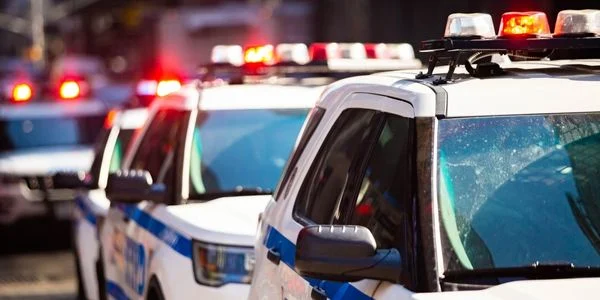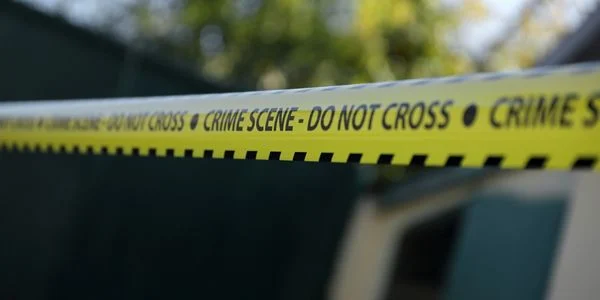Police TV shows are full of wild high-speed pursuits, tense hostage situations and dramatic last-minute courtroom twists. While these exciting made-for-TV moments might have you reaching for the popcorn, they’re often at odds with the day-to-day work of police officers.

Though it’s understandable that liberties are taken to keep things compelling on-screen, it’s good to separate fact from fiction. We asked criminal justice pros to weigh in and help identify the things that police TV shows regularly get wrong. Join us as we set the record straight.
8 Myths about the job you’ll find in police TV shows
Television is chock-full of fantastically entertaining but wildly inaccurate portrayals of police work. Here are a few of our favorite police show inaccuracies and what makes them stand out as wrong.
1. Police work is all action, all the time
When watching serialized TV shows, it’s easy to get the impression that a police officer’s life is a steady stream of tense standoffs, rushing to crime scenes and making investigative breakthroughs. But the reality is that the vast majority of police work would lead to some pretty lousy ratings.
“They make it seem like police officers are regularly getting into shootouts with bad guys, but in my 33 years of police work that never once happened,” says Brian McKenna, retired lieutenant and tactical instructor.
Obviously, police work has its exciting moments, but those are typically few and far between. While things can vary depending on the unit an officer works on, most in law enforcement spend much more time completing paperwork, making routine traffic stops and assisting the public.
2. There are arguments over whose case it is
You see it all the time in police TV shows—detectives hot on the trail of a suspect only to get tangled up in a dispute with a “rival” law enforcement agency. Sparks fly and tension rises as both sides jockey for the chance to bust the bad guy.
In reality, this situation almost never happens. Law enforcement agencies generally work very well together, and the idea of officers getting into a heated dispute is laughable, according to McKenna. Any major incident or arrest comes with not only the potential for danger, but a sizable amount of documentation and follow-up work.
“I always get a kick out of that—it’s like watching people fight over who wants to spend all night doing paperwork,” McKenna says.
3. “Commando cops” exist
Most viewers rarely bat an eye at it, but often TV police officers are portrayed as incredible action heroes. They’re regularly bursting into full-speed sprints where they easily catch up with suspects, effortlessly hopping five fences in a row and shooting out the tires of a speeding vehicle.
“I don’t think even a Navy SEAL or other Special Forces member could do all of these things, and they spend a lot more of their time training for it,” McKenna says. “The public tends to forget we’re human, too.”
The list of seemingly superhuman abilities goes on and on for TV police officers, but obviously this doesn’t really square with reality. Officers clearly have more training and expertise for handling these situations than most, but they’re still regular people with regular limitations.
“We can’t shoot a gun out of people’s hands or hit people in the leg to stop them—our equipment and training isn’t designed for that,” McKenna explains.
4. “The lab” will always figure it out
On television, you’ll often see our intrepid detective heroes round up a collection of evidence to be sent to “the lab.” In these scenes, they’ll (easily) find a few stray hairs, a smattering of blood and a spent ammunition casing that will all be analyzed—with a lot of unseen science—and quickly returned to the detectives for immediate leads to follow.
Much like the aforementioned commando cops, the people collecting evidence and working in forensics labs tend to suffer from superhero expectations. But these labs often don’t have a Bruce Wayne budget, and departments with strained resources have to prioritize their work.
“They make it look like these labs can take on every case,” McKenna says. “But the truth is that unless you have a pretty serious crime, a lot of departments aren’t going to be able to do much processing.”
Another issue with popular depictions of forensic lab work is the amount of time it takes to actually get things done. McKenna says that until very recently, processing DNA evidence would take a matter of weeks or even months—a far cry from TV turnaround times that seem like a matter of hours.
5. Intense action can be quickly brushed off
You’ve already heard how TV shows wildly embellish how often law enforcement officers get into shootouts or other dangerous situations. But it’s not just that—these shows also often do a poor job of showing how those experiences affect officers. After a shootout or fight, often these shows make it seem like officers are just hopping back into their patrol cars and going back to their regular work—and that’s definitely not the case. Life and death situations are as serious as it gets and can take a toll on officers, no matter the outcome.
“They never really show how these situations affect officers,” McKenna says. “Most officers involved in a shooting experience severe mental trauma from the event and they don’t often show them being scared or rattled.”
Depending on the scenario, departments may require an officer to take leave or undergo counseling to help with processing what happened.
6. Crime scene processing is unregulated
Depictions of crime scenes in police TV shows tend to have substantial issues. One common issue is the sheer number of people shown in and around a crime scene.
“Often on TV they’ve got detectives and uniformed officers wandering all over,” McKenna says. “The truth of the matter is that once a crime scene is secured nobody should be out walking through it—even a detective shouldn’t be in there if they’re not there to process the scene.”
McKenna says that while there may be multiple detectives processing a crime scene, they do everything they can to stay out of each other’s work space to avoid contamination issues.
7. Detectives can lead the SWAT team
This oddity of TV police work has been played out 100 times. Hot on the trail of a case, detectives learn their prime suspect is holed up in an old warehouse. They rush to the scene, strap on a bulletproof vest and come storming in directly behind the SWAT team who’ve broken down a door. After all, the detective character is the hero—why wouldn’t they be front and center at all times?
McKenna says that this depiction is just plain false. SWAT teams undergo a lot of specialized training, and when entering a building their movements are practically choreographed. Throwing an untrained detective into this intricately rehearsed operation would just make an already dangerous situation far worse.
8. Resolutions are tidy
“Far more crimes go unpunished than are cleared,” McKenna admits. “And even if you’re able to make an arrest, that doesn’t necessarily mean you’ll get a conviction.”
In a show like “Law & Order,” viewers tend to see criminal investigations run their course and find relatively clean resolutions—an eyewitness saw the event, conclusive DNA evidence is found or, even better, the accused breaks down and confesses in a dramatic courtroom scene. While these shows do sometimes show the accused winning in trial, the fact that they even get to trial alone is a big step. The reality is that a large portion of crimes committed are essentially unsolvable as leads dry up.
Are you cut out for the real thing?
We all know movies and TV are meant to entertain, and police TV shows are no different. While many of these inaccuracies come from the understandable place of keeping a story moving along and focused on central characters, they can also lead to some strange expectations of what police work is really like. Though the work might not live up to the expectations some might have from watching TV, McKenna says that shouldn’t deter people from a job he’s found to be extremely rewarding.
“If there’s one thing I miss about being a cop, it’s that feeling of being needed—and the ability to be someone’s hero in those moments,” McKenna shares.
If this sentiment appeals to you, you may be considering a career in law enforcement yourself. For a better understanding of whether you have what it takes to serve, check out our article, “The No-Nonsense Guide to What Makes a Good Police Officer.”




